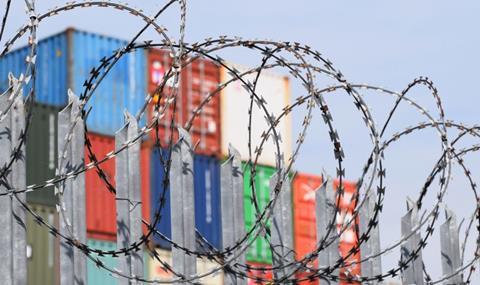
The UK government is to delay full post-Brexit import controls on goods from the European Union for a fifth time, pushing the start date back another three months to January 2024.
The latest date for implementation of these border controls was set for 31 October this year. However the government has announced today (29 August) that the deadline has been pushed back to the 31 January next year, as part of a phased introduction.
RHA welcomed this latest delay as an opportunity for border posts, government agencies, importers and exporters to prepare for the new systems and urged the government to work with ports of entry both at home and overseas to put the infrastructure in place to manage the new border system.
Logistics UK has responded to the move by questioning whether the government can meet this latest deadline and warning that logistics firms are losing faith in the government's ability to provide workable Brexit border controls.
Whilst the EU immediately introduced checks and paperwork for goods moving from Britain into the EU, following the UK’s exit from the single market in January 2021, in contrast, the UK government has delayed full implementation of border controls several times, due to concerns about delays and costs arising from the additional Brexit bureaucracy involved.
The phased introduction, outlined in the government’s Border Target Operating Model report, will begin on 31 January 2024.
This date will see the introduction of health certification on imports of medium risk animal products, plants, plant products and high risk food and feed of nonanimal origin from the EU and the removal of pre-notification requirements for low risk plant and plant products from the EU.
On 30 April 2024 documentary and risk-based identity and physical checks on medium risk animal products, plants, plant products and high risk food and feed of non-animal origin from the EU will be introduced.
This will be followed on 31 October 2024 with safety and security declarations for imports into Britain from the EU or elsewhere coming into force alongside a reduced dataset for imports.
Read more
- Awarding border checks contract to French company makes a mockery of Brexit
- PML forges deal to beat post-Brexit customs delays and speed up fresh produce deliveries
- Brexit effect still hampering efforts to bring in foreign workers to plug skills gaps
The report said the delay has been driven by rising concern at the impact of the new border controls, particularly on supply chains and the need to give businesses more time to prepare.
It points to feedback from stakeholders highlighting “new complexity and cost that would be introduced into the supply chain”, as a major reason for further delay.
It adds: “In particular, businesses highlighted that their supply chains would need time to adapt to new controls. This was particularly important in relation to the requirement for health certification which will require action from EU suppliers.
Responding to the announcement Nichola Mallon, Logistics UK head of trade and devolved policy, questioned whether the government will be ready by the 31 January deadline.
She said: “Will three months be sufficient time for government to provide the necessary technical detail and guidance that businesses will need to change processes and adapt to the changes outlined by the new trading arrangements?
“Logistics UK is studying this final model carefully to see if it addresses the concerns expressed by our members and contains the level of operational detail and assurances they, and their EU suppliers, need to make the changes required in that time frame.
“With so much to adapt to, and such a short time frame available, it is imperative that logistics businesses are given all the detail they need in the initial plan.
“Government needs to provide certainty for business on all the details of the new Border Operating Model, and a workable timeline which will allow sufficient planning and implementation time for those responsible for the UK's supply chain.
“After so much time, and so many delays, logistics businesses are losing confidence in the government's ability to provide workable solutions to enable the new trading arrangements to be implemented. Our members need all the detail for how border arrangements are to work, and time to implement the changes - if not, the lack of certainty puts the UK's supply chain at risk."













